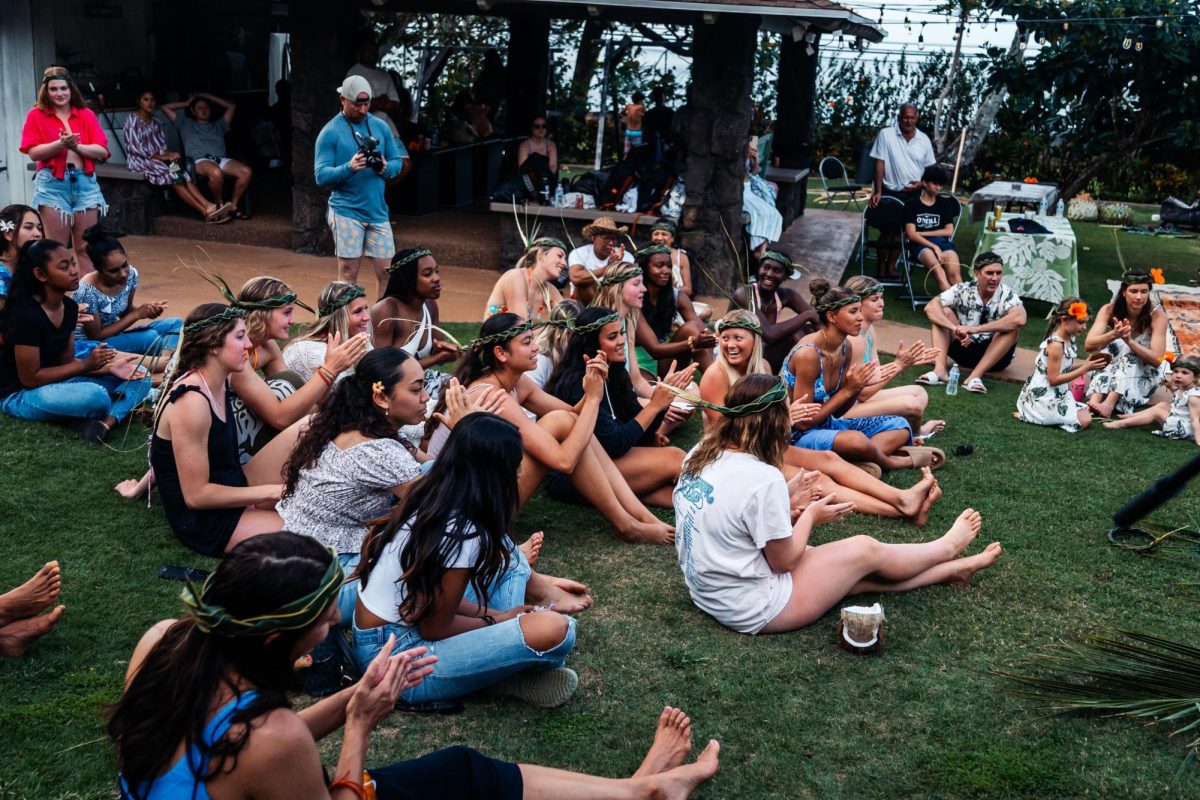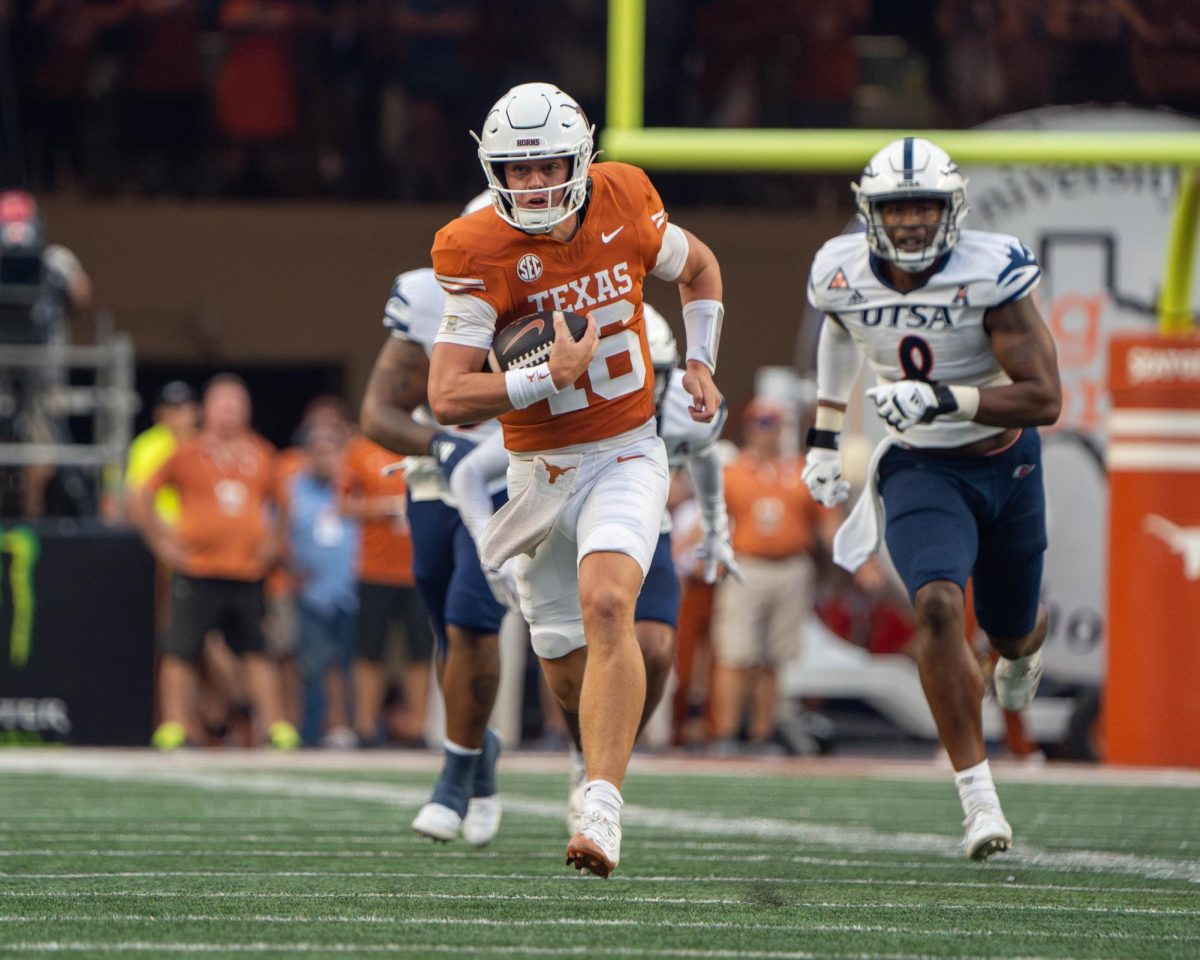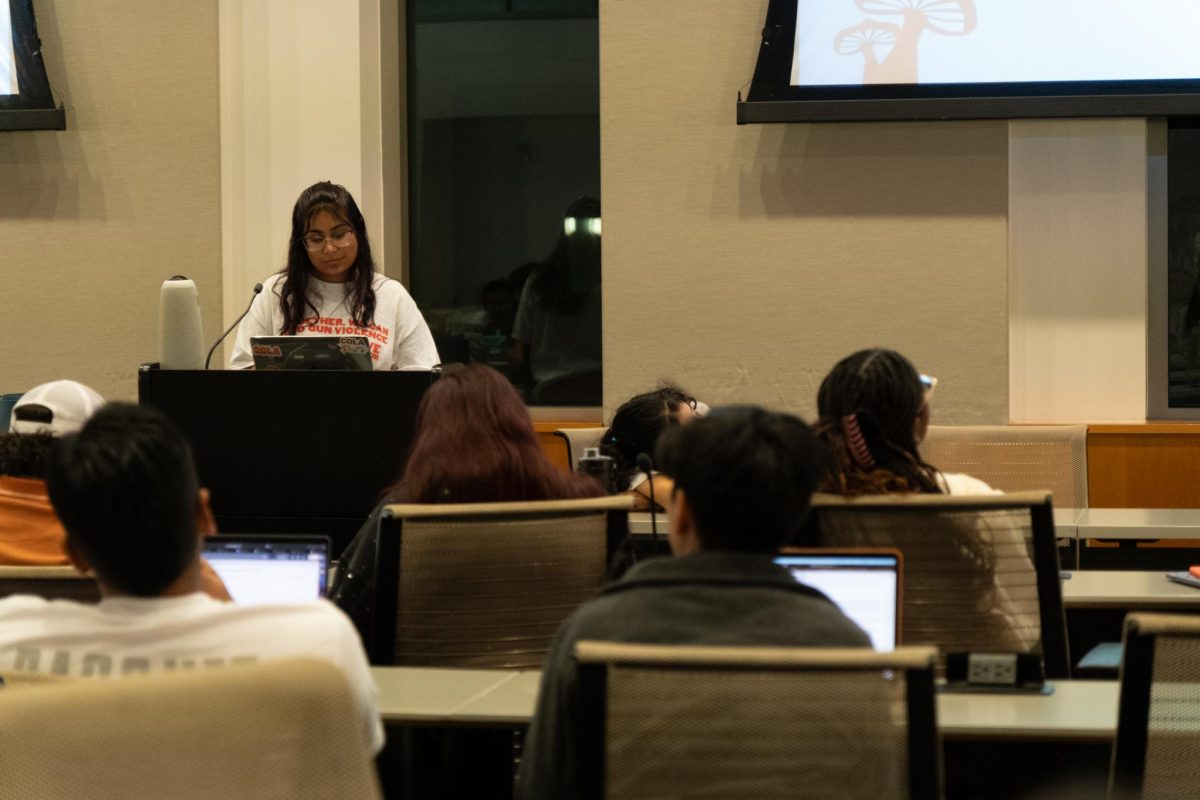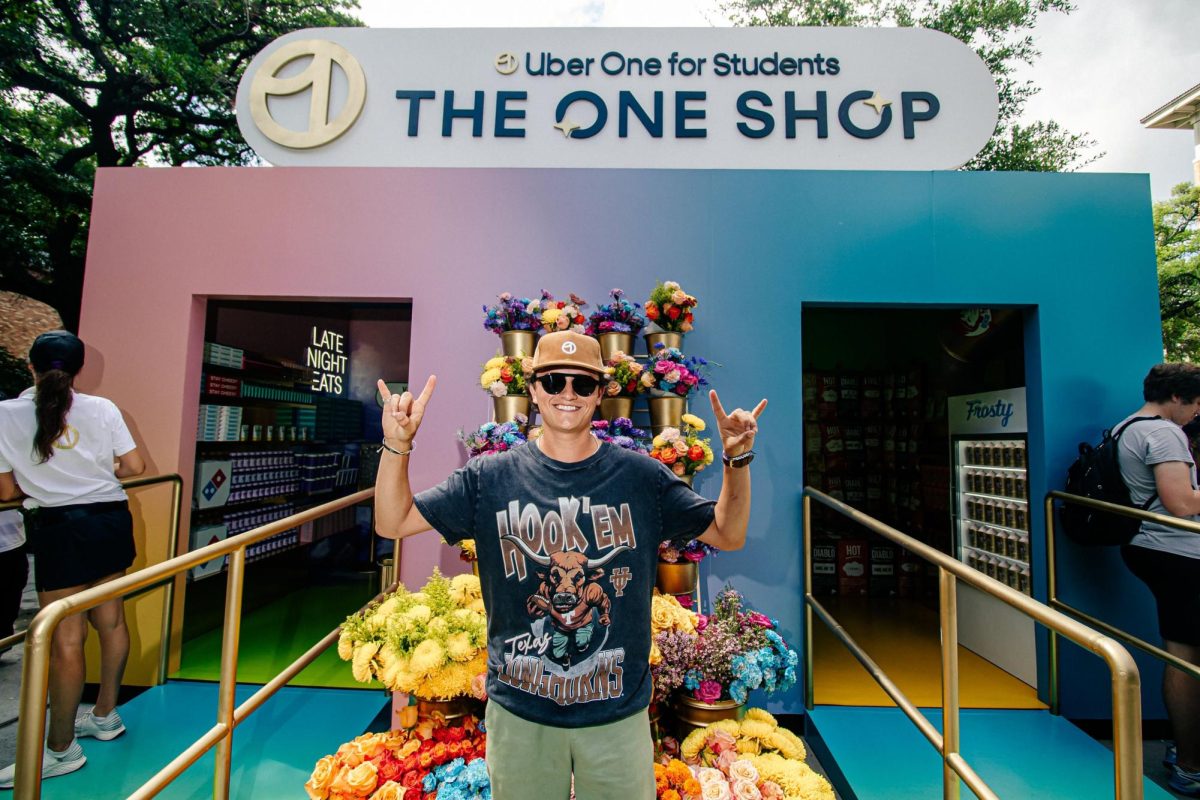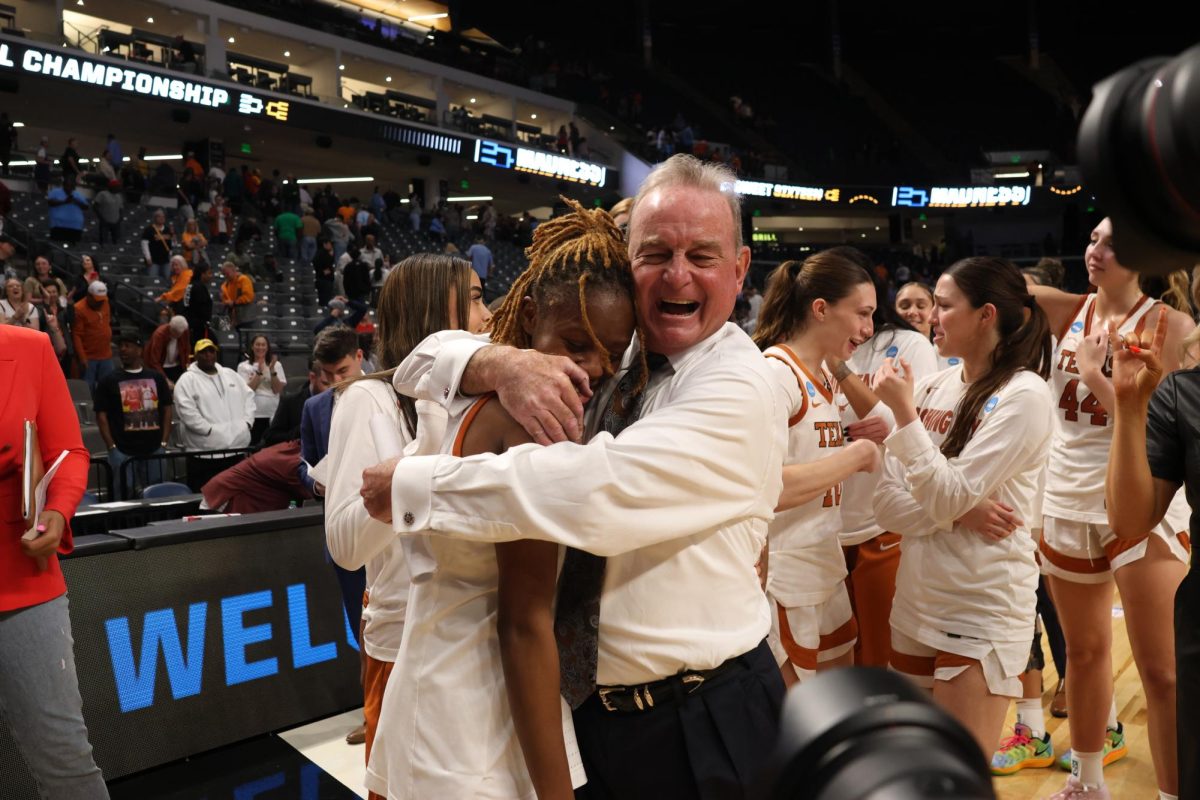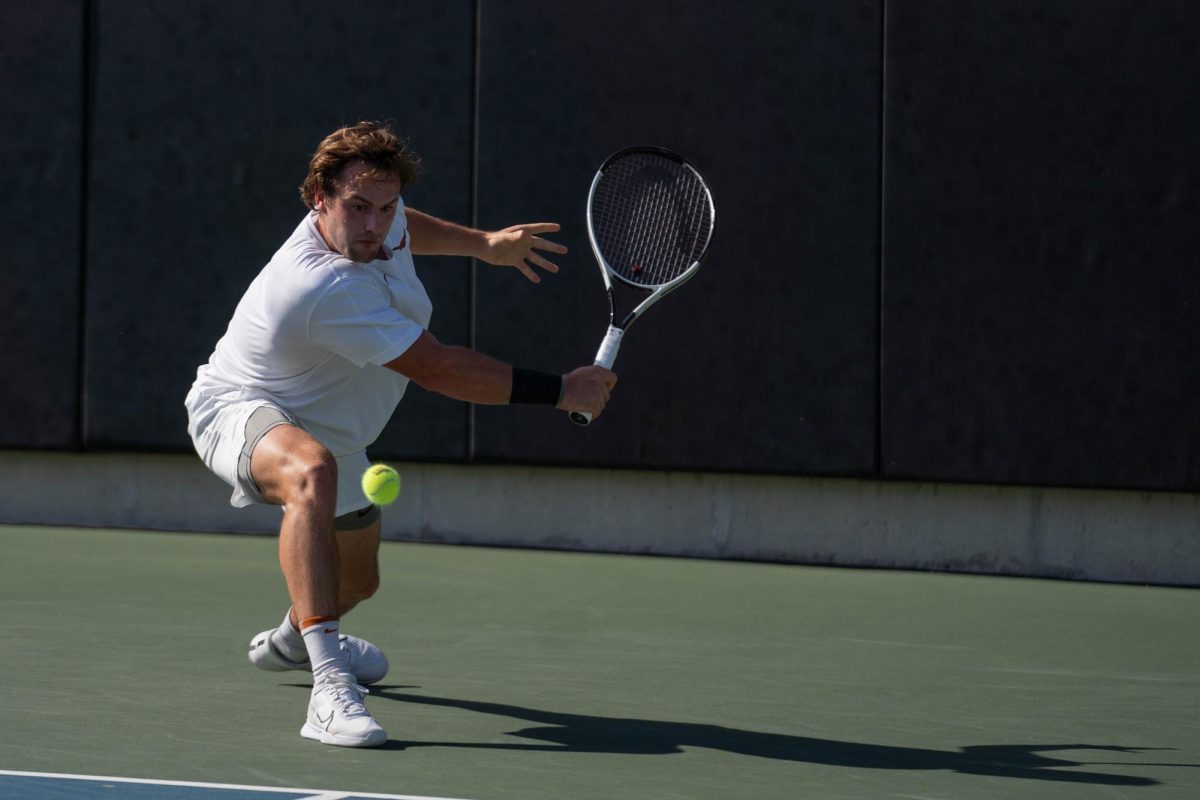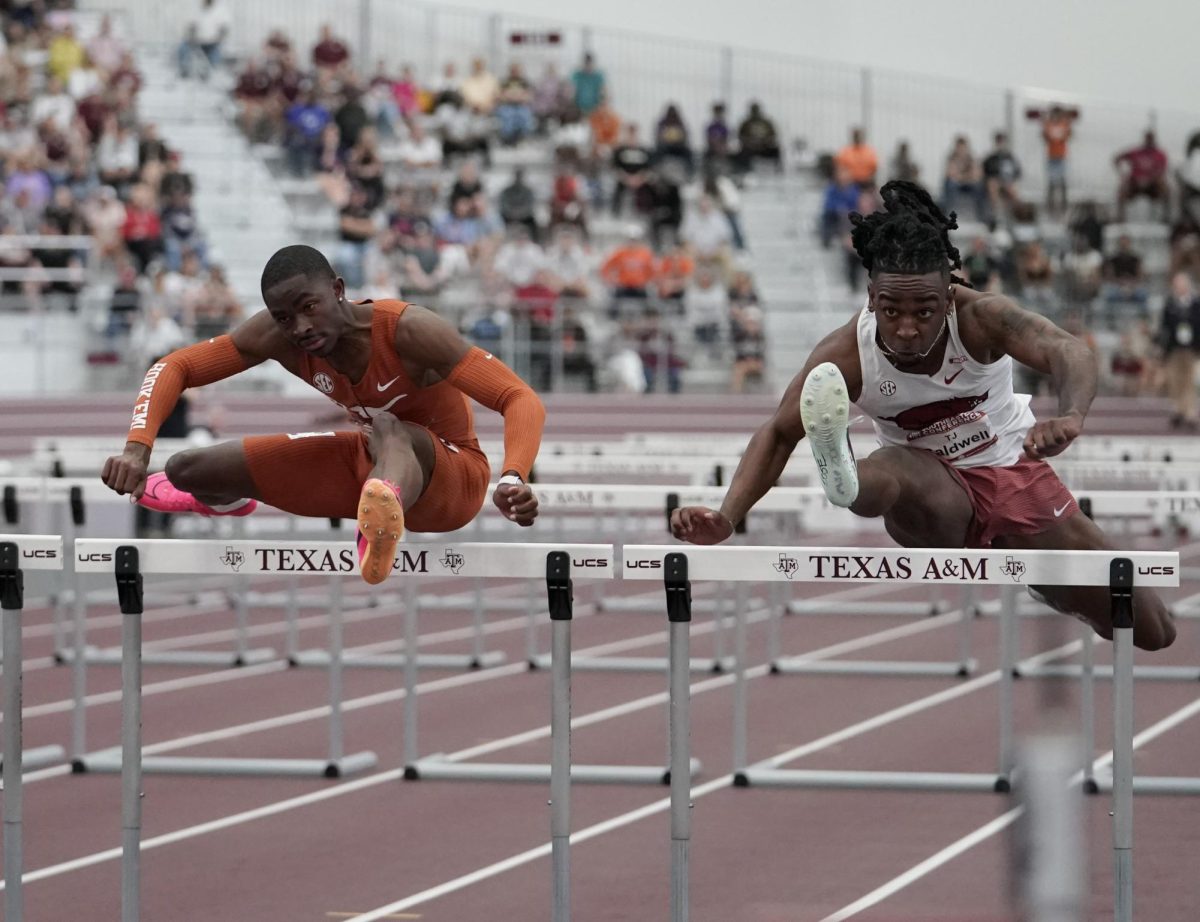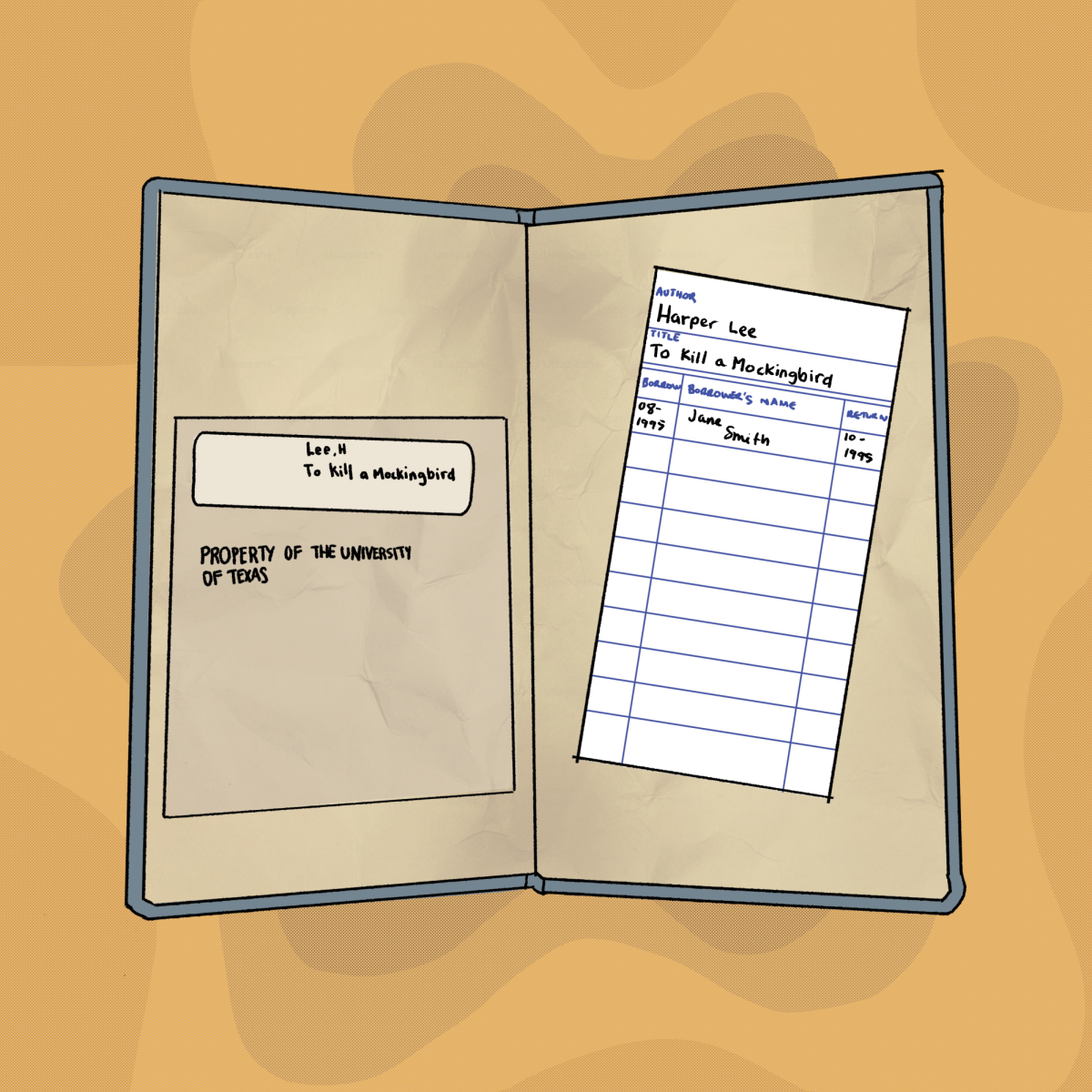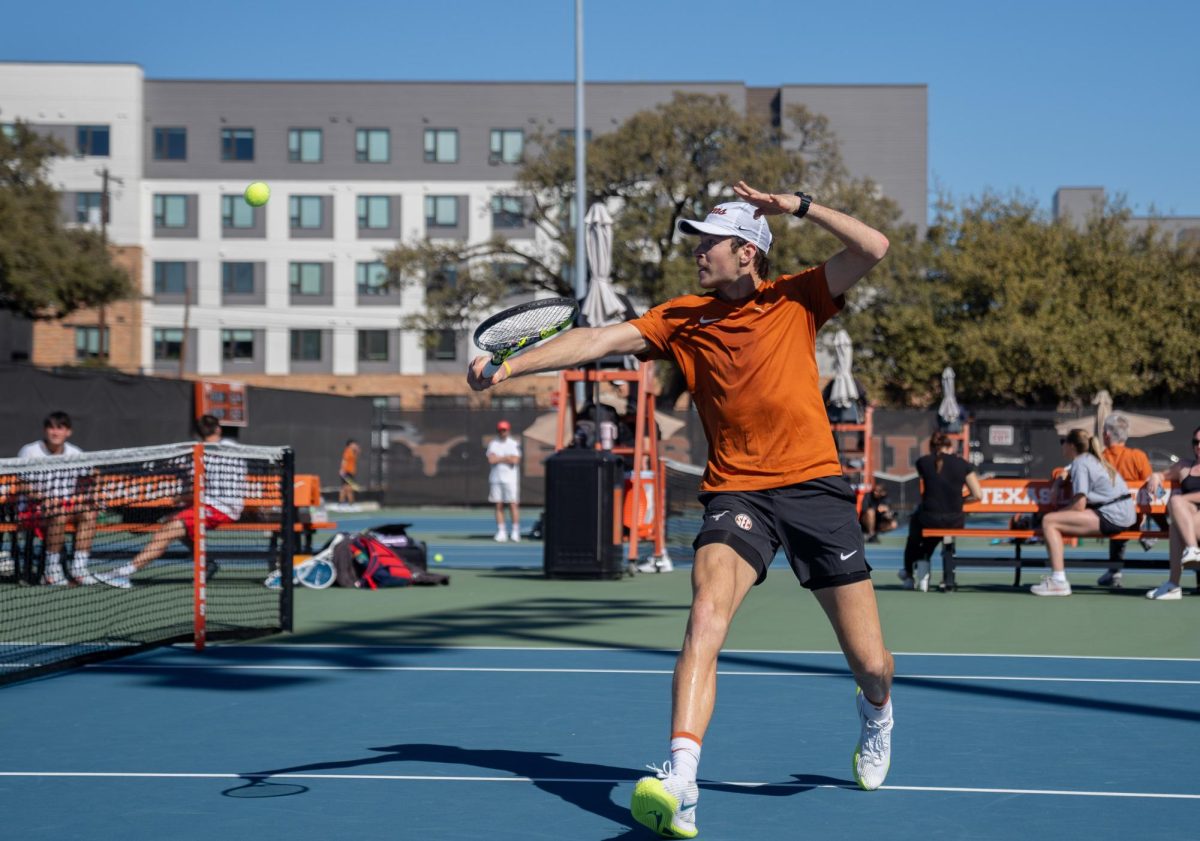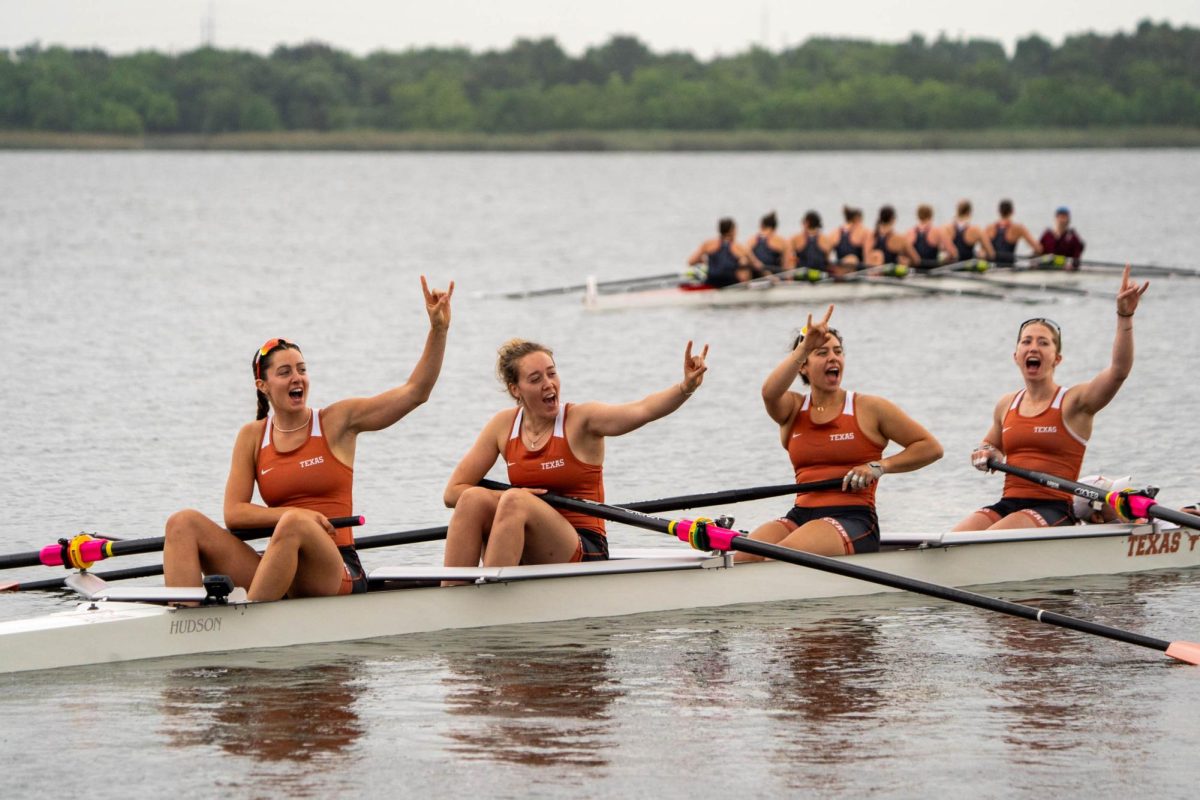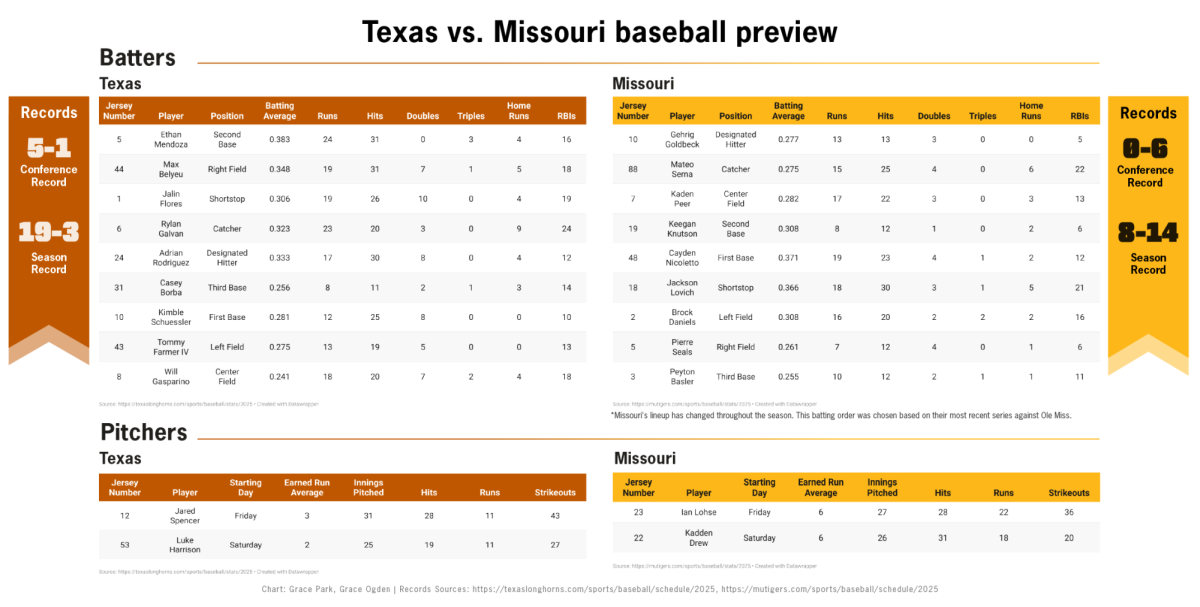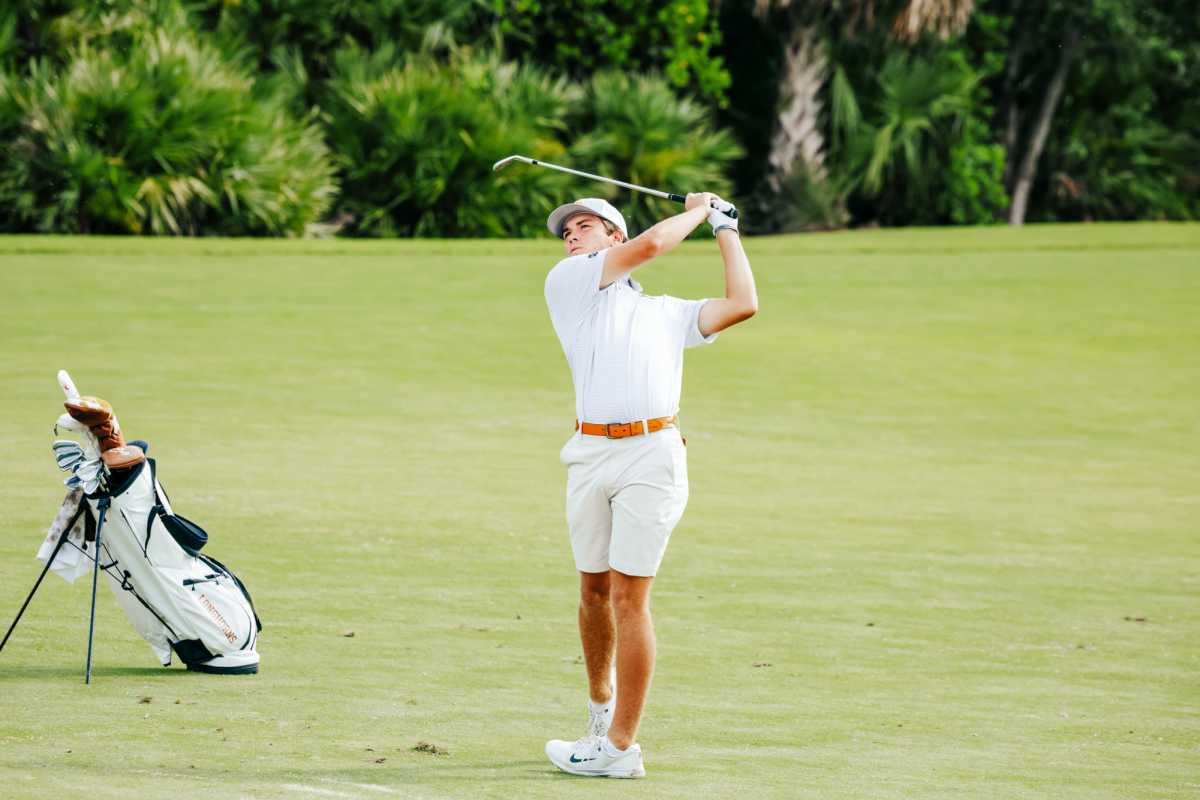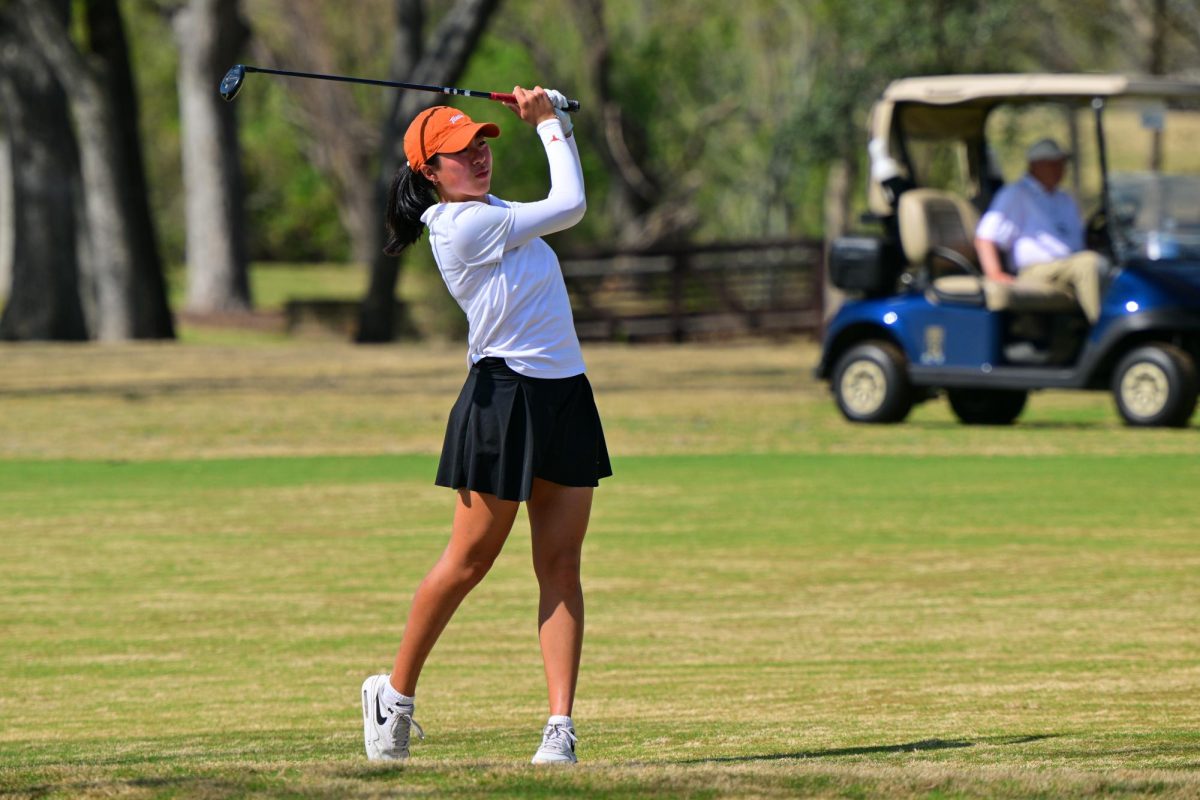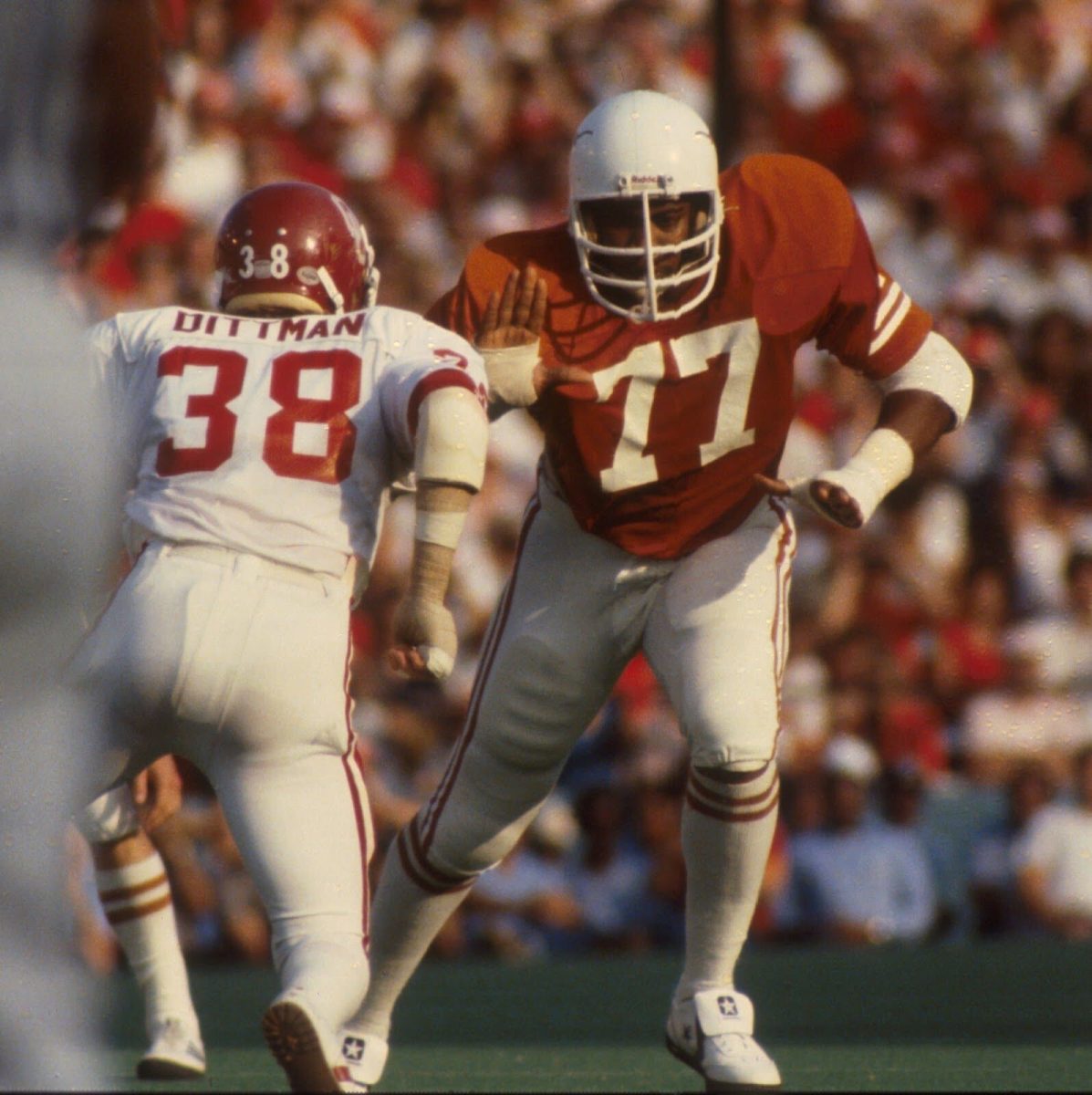Keonilei Akana and Devin Kahahawai were barely teammates six years ago. They met for the first time at varsity volleyball tryouts at a school exclusively for Native Hawaiian students. Now, they’re roommates an ocean away from the islands they continue to call home. They show such a strong connection that one could consider this pair of Texas volleyball players to be sisters.
The room they Zoomed from was understated, almost bare — a lei hung from a mirror, and a stray “Happy Birthday!” balloon lingered in the background.
“It’s actually a funny story,” sophomore outside hitter Kahahawai said of their first meeting. “I was honestly terrified of her. I was like, ‘Oh my gosh, it’s Kaylei Akana.’ It was honestly one of my core memories from high school.”
Then-freshman Kahahawai had every right to feel a little intimidated. Entering her junior year of high school, Akana had put in the work for Kamehameha Kapālama’s varsity volleyball team for the last two years, earning the Honolulu Star-Advertiser’s Player of the Year award in 2019. Now UT’s junior libero, Akana served the ace that secured Texas the national title over Louisville last December.
“I looked up to her,” Kahahawai said. “(Going from) watching her on TV and going to the games and being a fan in the stands to playing alongside her on the court was surreal to me. And it’s really funny that about six years later, here we are, roommates about 3,000 miles away.”
But of course, they’re more than just roommates. As teammates, Akana and Kahahawai not only represent the Longhorns at the highest levels of collegiate volleyball but also their culture, home state and one of the smallest ethnic groups on campus and in Texas.
Nationwide, Asian American-Pacific Islander involvement in the NCAA has increased by 50% since 2012. According to the 2020 U.S. Census, more Native Hawaiians live on the United States mainland than in Hawaii. With these notable shifts, Akana and Kahahawai pride themselves on their Native Hawaiian heritage on and off the court.
Preserving their culture has been a precedence for Hawaiians for over 150 years. Princess Pauahi Pākī noticed a decline in the Hawaiian population and culture in the late 1800s. When she died in 1884, she left about 375,000 acres in her will to endow the Kamehameha Schools. The institution has operated since 1887, when Hawaii was an independent kingdom, and includes campuses across the state, according to its website. Kahahawai and Akana’s time at Kamehameha stoked their passion for Hawaiian culture.
Students must take Hawaiian language and history classes, fulfilling Princess Pauahi’s wishes. Additionally, volunteer opportunities and field trips across the islands give students like Akana and Kahahawai a hands-on Hawaiian education. One field trip brought the pair to Mauna Kea on the Big Island during protests against the construction of the volcano’s 14th telescope.
“Not only were we there together as a team, but we were able to show our support for our heritage and our culture,” Akana said.
Akana’s dad makes the 3,700-mile trip to Austin every couple of weeks to see her and her brother, Tausili, who plays for Texas’ football team. A new direct flight to Honolulu by Hawaiian Airlines shortens the trip. Akana said she “absolutely loves that route.”
Kahahawai and Akana said Texas’ volleyball program feels like a family, one of the reasons they decided to wear burnt orange. Akana said “everyone supports each other” in Hawaii since communities are much smaller. One can find that idea of family everywhere in Hawaii, even in competitive sports, which brings different communities together.
“It’s just a very big family culture similar to back home,” Kahahawai said. “Having two Hawaii girls here — at the time, it was Jhenna Gabriel and Saige (Ka’aha’aina-Torres) who were here when I took my visit — was a big thing for me.”
Akana played at Nebraska for two years before moving to Texas. A Longhorn volleyball camp in 2016 and head coach Jerritt Elliott’s history at the University of Hawaii drew Akana to Texas.
“Although I love Hawaii, I left (because) I wanted to try and make an impact somewhere else,” Akana said.“Being able to show people at home that you’d be able to leave and still be successful.”
It’s a sentiment felt by many Native Hawaiians in Hawaii, said Hōkūlani K. Aikau, director of the University of Victoria’s School of Indigenous Governance. She said migration is nothing new to Native Hawaiians since Polynesian voyagers initially settled in Hawaii and developed a unique culture. Hawaiians settled on the west coasts of the U.S. and Canada throughout the 18th and 19th centuries for many reasons. Today, economic factors motivate most moves to the mainland.
“The shift away from a plantation economy towards the tourist economy has created conditions that make it very difficult, if not impossible, for Hawaiians to remain in our homeland,” Aikau said. “Hawaiians are committed towards genealogies (which) connect us to specific places in our homeland. We don’t give that up just because we leave.”
Aikau said there’s a common misconception that “if Hawaiians leave, they don’t want to be Hawaiian anymore.” However, she said many scholars studying Hawaiian migration and diaspora disagree with this idea.
“Just because we traveled (away) doesn’t mean we are … any less connected or committed to our homeland,” Aikau said.
Kahahawai and Akana stay connected to their Hawaiian roots with the many tastes from home — slightly sweet and spicy Portuguese sausage and savory Spam Musubi. Basking in their culture with each other and sharing it with curious teammates also helps them stay grounded in their identities.
“It’s really nice when our teammates ask us about our culture,” Kahahawai said. “The other day, one of my teammates asked me how Hawaii was illegally overthrown. That was something that really won my heart because they care about our culture, and they want to learn more.”
Akana and Kahahawai felt more than happy to share with the team. They hosted a lū’au for the volleyball team when they visited O’ahu for a beach volleyball tournament in March. The team wove hakus, or head leis, danced to Hawaiian music and enjoyed local cuisine.
“Spam is looked down upon over here,” Kahahawai said. “My parents were like, ‘Oh, we’re going to bring Spam Musubis.’ I was like, ‘Oh, I don’t know about that.’ And the girls loved it. I only had half of one Spam Musubi by the end.”
Though Akana and Kahahawai went to high school together, they hardly saw each other because they lived on opposite sides of the island. Texas volleyball has brought them closer together, physically and emotionally. The program has also turned them from state to national champions. No matter how far from home, they always look back to their roots.
“Our coach (at Kamehameha) always told us to play for those who came before us and then play for those coming behind us,” Akana said.
Just a few weeks ago, they watched their alma mater, an ocean away, compete for the state championship again. It was a late night, cheering on Kamehameha and reflecting on old memories. Because of the time difference, the 7 p.m. game started at 11 p.m.
Kamehameha secured the final set. Kahahawai celebrated while Akana snoozed on the couch. But Akana celebrated in her dreams, supporting her culture and the teammates who came after her.
“Being able to watch them play in that championship game was a full moment for us,” Akana said.

